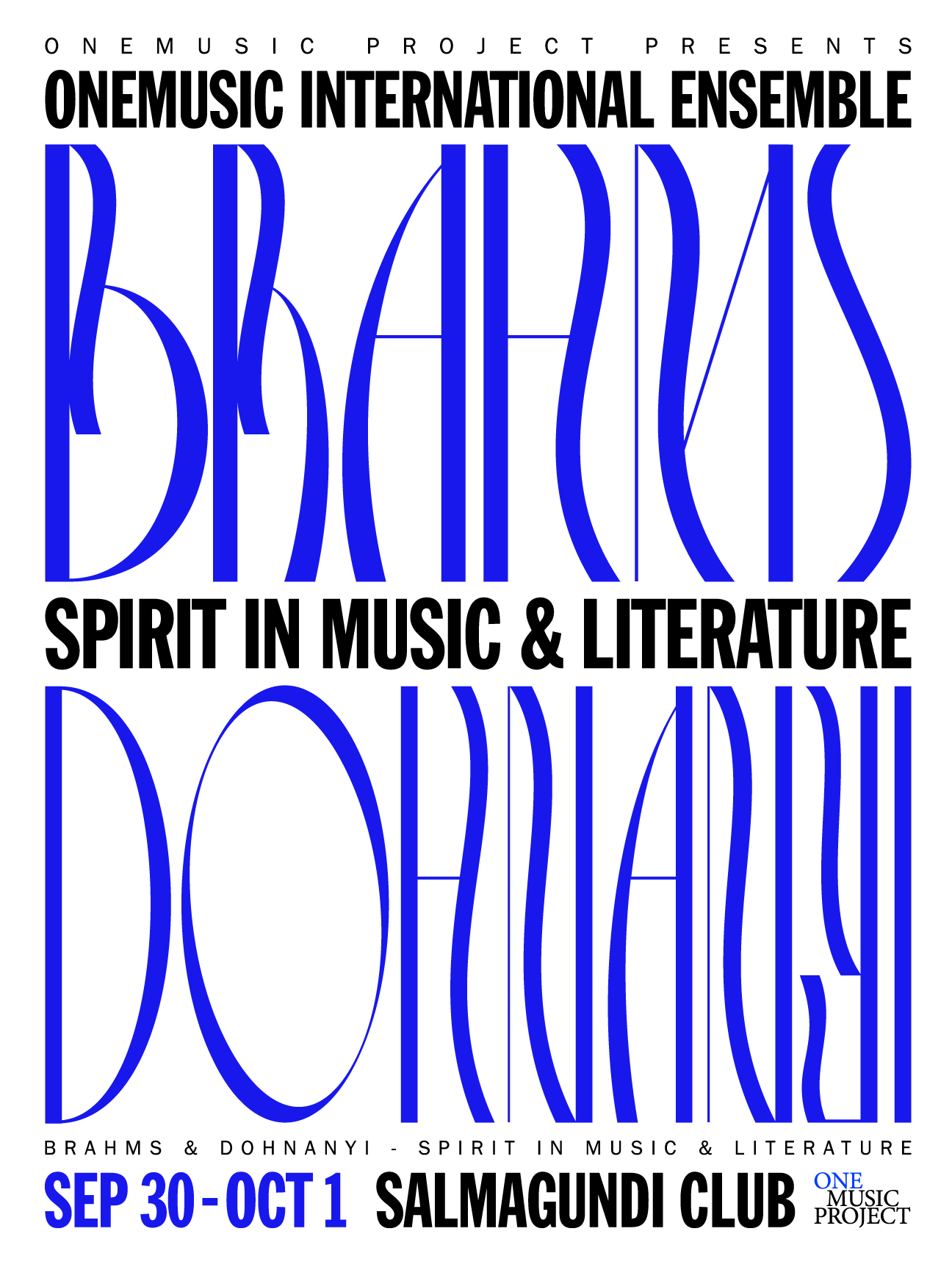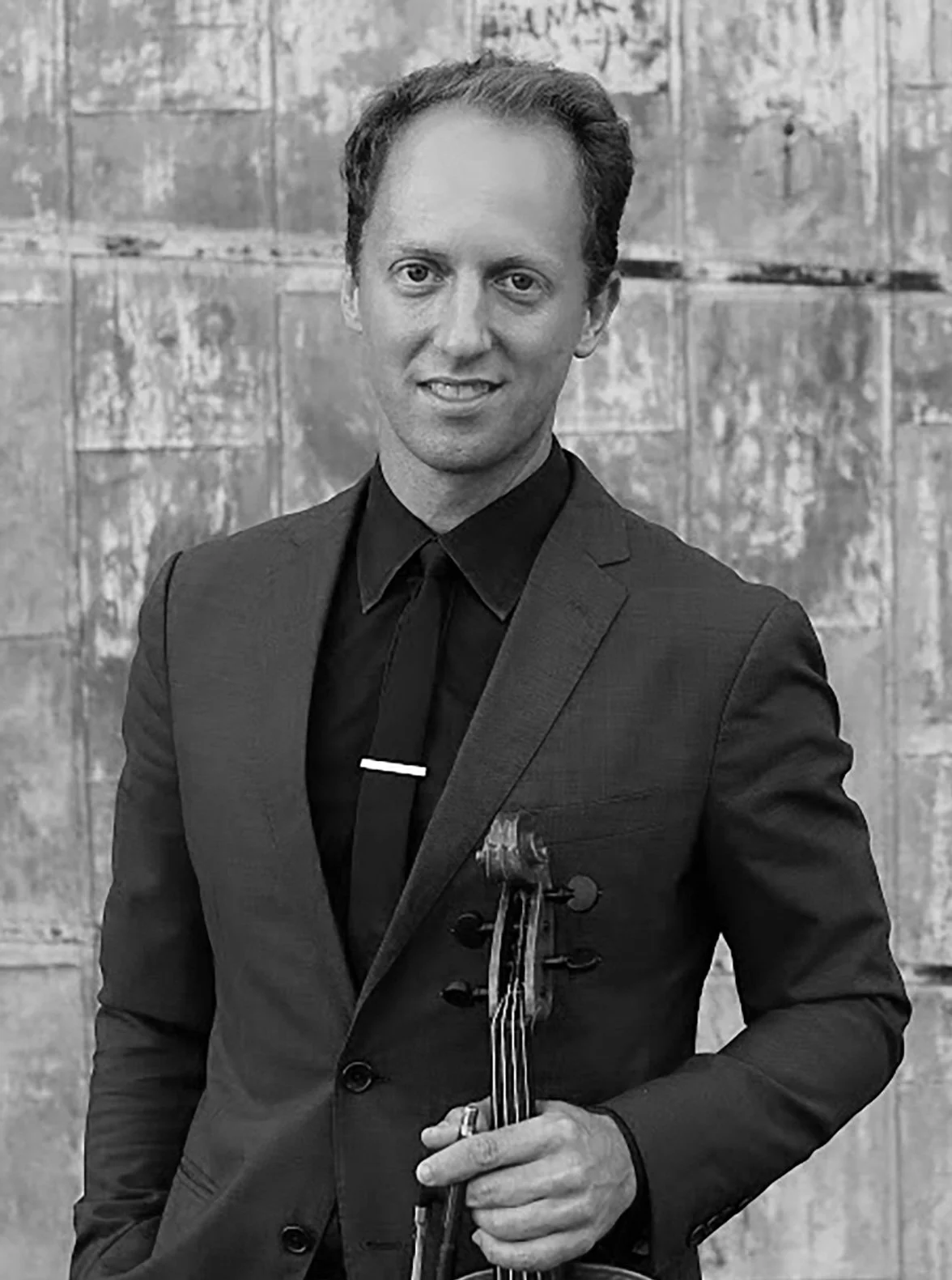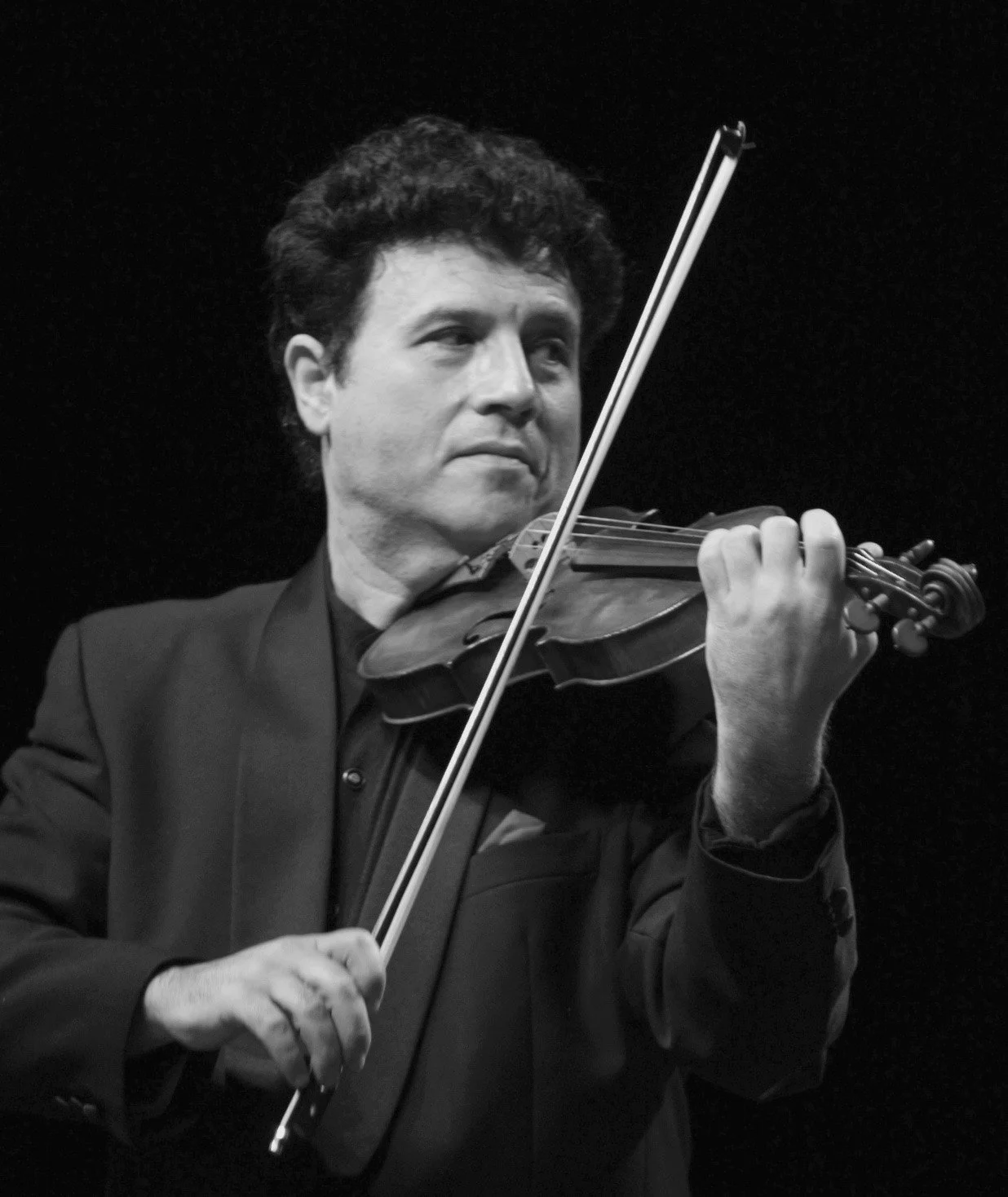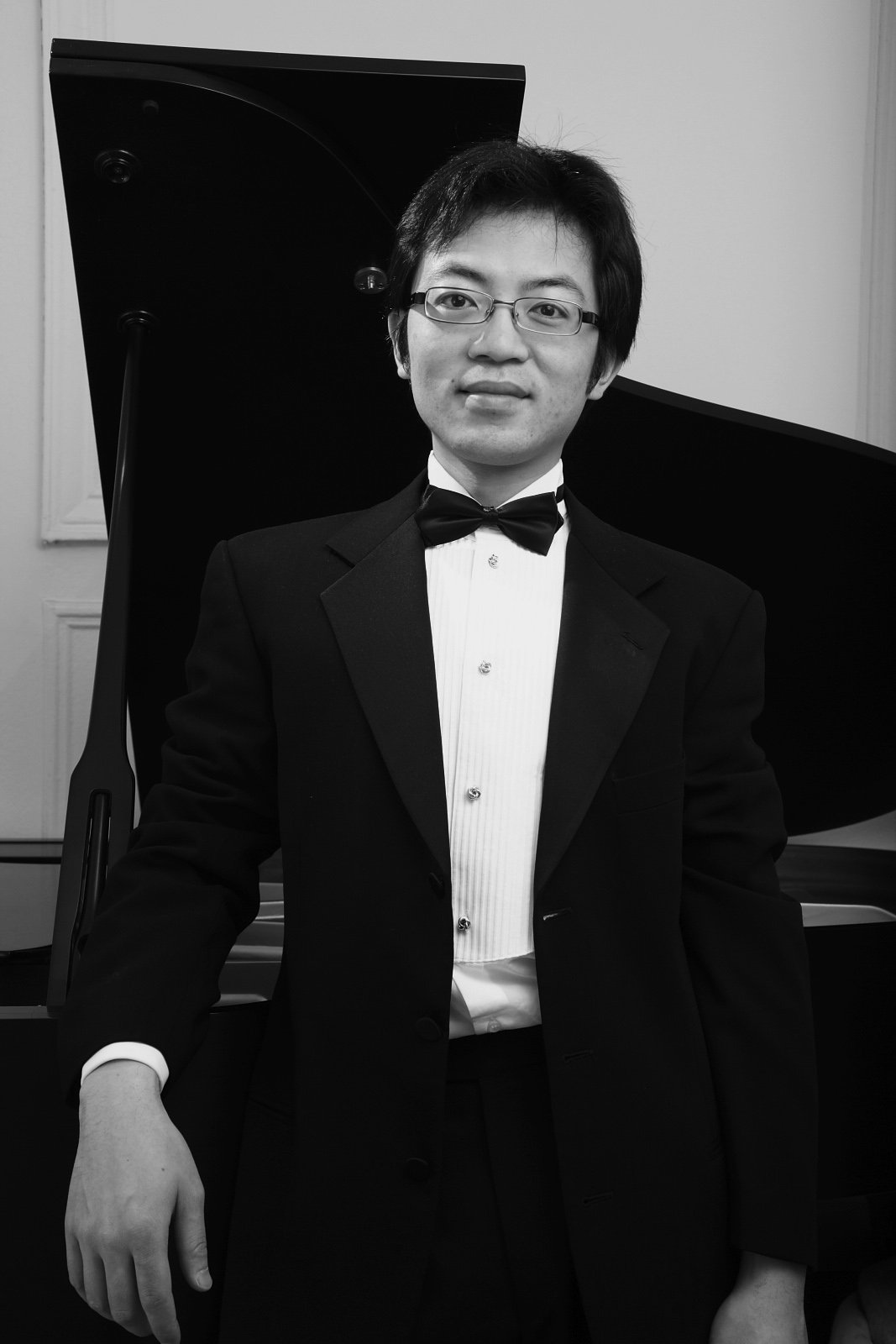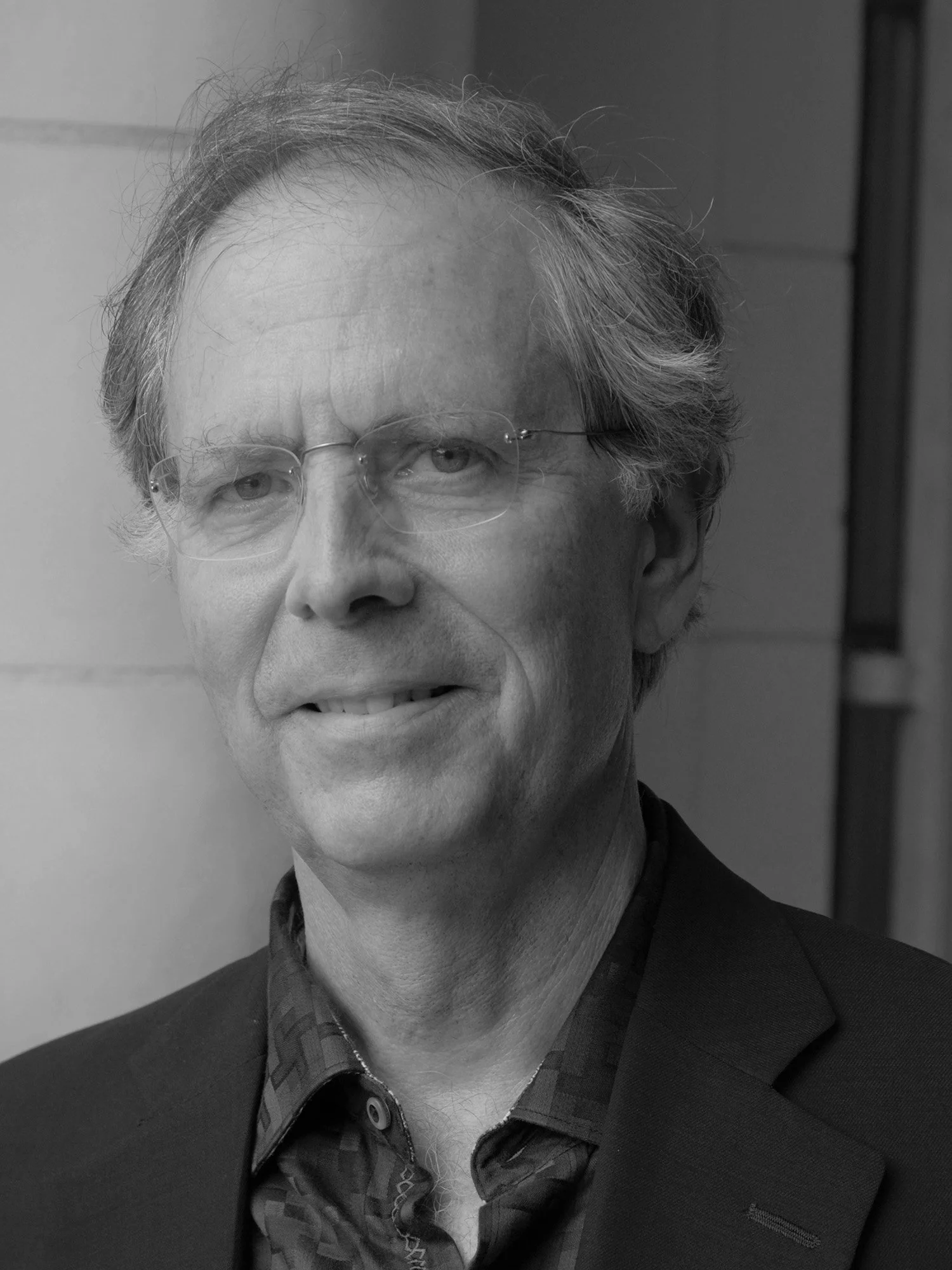Concert Program
OneMusic International Ensemble
Spirit in Music & Literature
A Night of Music & Literature
September 30 - October 1, 2022
Yibin Li, Sergiu Schwartz - violin
Luke Fleming - viola
Philippe Muller - cello
Chung-Hsi Hsieh - piano
Rufus Collins - reading
Sextet/Piano Trio No.1 in B Flat Major, op.18
Johannes Brahms
(arr. Theodor Kirchner)
I. Allegro ma non troppo
II. Andante ma moderato
III. Scherzo-Allegro Molto
IV. Poco Allegretto e grazioso
Variations on a Row
William H. Weigel
(Commission)
- Intermission
Piano Quintet No.1 in C Minor, Op.1
Erno Dohnanyi
I. Allegro
II. Scherzo-Allegro Vivace
III. Adagio, quasi andante
IV. Allegretto animato
Readings
Brahms Letters to Clara Schumann
Thomas Hardy The Darkling Thrush
Mathew Arnold Dover Beach
The Artists
Yibin Li
Yibin Li was born in Jiuquan, China, a small city near the Gobi Desert. When she was just 4 1/2, she began playing the violin under the guidance of her father. Just 7 years later, she left home to study at Xi’an Conservatory, where she remained until moving on to Shanghai Conservatory. Upon her graduation, she was appointed to the violin faculty, and taught in Shanghai for six years as a young member of the tenured faculty. At 26, she felt the need to continue her studies in the US and moved to New York, where she went on to earn two additional graduate degrees at The Juilliard School and Mannes School of Music. Her teachers have included Lewis Kaplan, Seymour Lipkin, Earl Carlyss, Peiwen Yuan and Xiaolong Liu.
Ms. Li has performed as a soloist with major symphonies in China and the US, including the Beijing National Symphony Orchestra, Shanghai Symphony Orchestra, Taipei Symphony Orchestra, Gaoxiong Symphony Orchestra, San Diego Symphony, Hunter Symphony and Syracuse Symphony Orchestra. She was the first violinist and founder of the Iris String Quartet, and the founder of French-American Ensemble, and has directed and played chamber music concerts in many New York City venues including Carnegie Hall, Alice Tully Hall, Merkin Hall and Scandinavia House. In China, she traveled to over 20 cities performing both solo and chamber concerts in major performing arts centers.
Ms. Li performs and teaches regularly at summer music festivals including the Bowdoin International Music Festival and Bach Virtuoso Festival in Maine., the LaSalle Music Festival in France, Sesto Rocchi Chamber Music Festiva in Italy and the Lake Lugano Chamber Music Festival in Switzerland.
Yibin Li is currently on the faculties of Mannes School of Music and The Juilliard School Pre-College Division, and is a visiting professor in China at the Xi’an Conservatory of Music and Beijing Central University for Normal Studies.
Ms. Li has performed as a soloist with major orchestras in China and the USA including the Beijing National Symphony Orchestra, the Shanghai Symphony Orchestra, Taipei Symphony, the Gaoxiong Symphony Orchestra, and the San Diego and Syracuse Symphonies. Her New York recital debut at Weill Recital Hall took place in 2001, and she performed solo recitals, in various chamber music ensembles, and as first violinist of the Iris Quartet at venues throughout the world including at Alice Tully, Carnegie and Merkin Halls and in more than 20 cities in China, France, Italy and the USA.
Ms. Li performs and teaches regularly at summer music festivals including the Bowdoin International Music Festival and Bach Virtuoso Festival in Maine., the LaSalle Music Festival in France, Sesto Rocchi Chamber Music Festiva in Italy and the Lake Lugano Chamber Music Festival in Switzerland.
Yibin Li is currently on the faculties of the Mannes School of Music, Juilliard’s Pre-college Division and as visiting professor in China at the Xian Conservatory and Beijing Central University for Normal Studies.
Philippe Muller
Born in Alsace, Philippe Muller was raised in both the French and German musical traditions that characterize that province. His early experiences opened his mind to varying cultures and lead him to a multi-faceted career. He performs and has recorded a wide range of repertoire, from the Bach Suites, through the music of living composers.
In 1970, Mr. Muller founded a Piano Trio with pianist Jacques Rouvier and Jean- Jacques Kantorow, violin, which was widely known to be one of Europe’s most venerated chamber music ensembles. He worked closely with Pierre Boulez’ Ensemble Intercontemporain, for seven years, giving him an understanding of and an affinity for the music of our time. He continues to be active in commissioning new cello works and premiers of new music and performs frequently as soloist and in various chamber music ensembles at festivals in Europe, the United States, Canada, Latin America, Japan, Korea, Australia and New Zealand.
Philippe Muller’s teaching career is legendary. He succeeded his mentor André Navarra as cello teacher at the Conservatoire de Paris in 1979, continues his teaching legacy today here in New York, at the Manhattan School of Music. Many cellists from his studio have gone on to major careers as soloists including Xavier Phillips and Gautier Capuçon. He travels often giving master-classes in the top conservatories across the globe and has spent twenty years teaching at the Academy of French Music in Kyoto, Japan.
Philippe Muller frequently serves on the juries of the major international cello competitions such as the Tchaikovsky in Moscow, Paulo in Helsinki and Rostropovitch in Paris.
Luke Fleming
Praised by The Philadelphia Inquirer for his “glowing refinement,” violist Luke Fleming's performances have been described by The Strad as “confident and expressive...playing with uncanny precision," and lauded by Gramophone for their "superlative technical and artistic execution.” Festival appearances include the Marlboro Music School and Festival, the Steans Institute at Ravinia, Perlman Music Program, the Norfolk and Great Lakes Chamber Music Festivals, the Melbourne Festival, Bravo!Vail, and Festival Mozaic. Formerly the violist of the internationally acclaimed Attacca Quartet, he has served as Artist-in-Residence for the Metropolitan Museum of Art and received the National Federation of Music Clubs Centennial Chamber Music Award. He was awarded First Prize at the Osaka International Chamber Music Competition and top prizes at the Melbourne International Chamber Music Competition.
In 2015, Mr. Fleming became the Founding Artistic Director of both the Manhattan Chamber Players, a New York-based chamber music collective, and the Crescent City Chamber Music Festival. He currently serves as Adjunct Professor of Viola at the University of New Orleans School of the Arts. He is also a founding member of the Delaware-based Serafin Ensemble. He has performed as a guest artist with the Escher, Modigliani, Pacifica, Serafin, and Solera String Quartets, the Eroica, Lysander, and Gryphon Piano Trios, the Chamber Music Society of Lincoln Center, Decoda, Ensemble Connect, Sejong Soloists, the Orchestra of St. Luke’s, and the New York Classical Players, and has given masterclasses at UCLA, Louisiana State University, Ithaca College, Columbus State University, Syracuse University, Melbourne University, and the New Orleans Center for Creative Arts, among others. Mr. Fleming has served on the faculties of the Innsbrook Institute, Renova Music Festival, Festival del Lago, and Houston ChamberFest, and Fei Tian College and is Lecturer-in-Residence for the concert series Project: Music Heals Us.
Mr. Fleming holds the degrees of Doctor of Musical Arts, Artist Diploma, and Master of Music from the Juilliard School, a Postgraduate Diploma with Distinction from the Royal Academy of Music in London, and a Bachelor of Music summa cum laude from Louisiana State University. He is represented with the Manhattan Chamber Players by Arts Management Group.
Sergiu Schwartz
Schwartz’s performances have taken him to major music centers on four continents, including twenty European countries, Israel, Asia, Canada, and over forty US states. “Following in the footsteps of his fellow Sergiu countrymen Itzhak Perlman and Pinchas Zukerman, he is a product of the best of European romantic interpretative style and 20th-Century American technical acuity,” states New York’s Newsday, while Le Soleil (Canada) notes that “he stands out as one of the best violinists of his generation.” Fanfare - The Magazine for Serious Record Collectors, writes: “for those who lament the passing of the great violinists of the middle of the last century, Schwartz’s collection should provide a great sense of optimism that a younger violinist still commands such assured rhetoric and expressive resources. Heifetz, Milstein, Oistrakh, Isaac Stern, Francescatti – they all come to mind.”
Mr. Schwartz has performed in major concert halls, including Lincoln Center, Carnegie Hall, Kennedy Center, London’s Barbican Hall, Queen Elizabeth Hall, and Wigmore Hall, Royce Hall in Los Angeles, Jerusalem Theatre and Rome’s Academia Santa Cecilia. Soloist engagements include Dresden Staatskapelle, Jerusalem Symphony, London Symphony, Dresden Philharmonic, Slovak Philharmonic, European Community Chamber Orchestra, National Symphony Orchestra of Mexico, Polish National Radio Symphony Orchestra, Qingdao Symphony Orchestra, Mokpo Philharmonic, Busan Sinfonieta, Orchestra of St. Luke’s, Chicago’s Grant Park Festival Orchestra, among orchestras in the U.S. and worldwide. He has recorded for Vox, Gega, Naxos, Arcobaleno, Nonesuch and Romeo Records.
A frequent guest at music festivals in the United States, Israel, Switzerland, Finland, England, France, Holland, Romania, Bulgaria and China, Mr. Schwartz is artist faculty at Bowdoin, Montecito, Killington, Summit, Mozarteum-Salzburg and Keshet Eilon (Israel) international music festivals.
Chung-Hsi Hsieh
Pianist Chung-Hsi Hsieh is from Taiwan. He won top prizes in the Nena Wideman International Piano Competition, Taipei International Chopin Competition, Taiwan Concerto Competition, Corpus Christi Young Artists Competition, and Fischoff National Chamber Music Competition. He has appeared in renowned recital halls such as Carnegie Weill Recital Hall, Merkin Hall, Klavierhaus, and Steinway Hall, in New York City, as well as the National Recital Hall in Taiwan. As a chamber musician he often collaborates with the principles of Boston Symphony Orchestra, Berlin Deutsches Symphonie Orchester, San Diego Symphony Orchestra, and A Far Cry Chamber Orchestra. Mr. Hsieh has performed recitals in Boston, Los Angeles, Beijing, Shanghai and Shenyang. He was a young artist at the Irving Gilmore International Keyboard Festival in Kalamazoo, MI, as well as Kneisel Hall Chamber Music Festival.
After winning the top prize from Taiwan National Music Competition in 1991, he was awarded the opportunity to continue his musical studies in USA where he obtained his high school diploma from Interlochen Arts Academy, BM and MM from The Juilliard School, and DMA from Rutgers, The State University of New Jersey. His principle teachers were Victoria Mushkatkol, Seymour Lipkin, and Susan Starr. During this time he also worked with Lynn Harrell, Lewis Kaplan, Arnold Steinhardt, Jane Coop, and Douglas Lundeen.
Mr. Hsieh started his musical training on the piano at age 4. He also learned violin, and Erhu, a traditional Chinese instrument when he entered the music training class at age 9. At a young age he already showed his musical talent, as he frequently won competitions on piano and violin, and he started performing as soloist and conductor, leading the school symphony orchestra, Chinese instrument orchestra and school choir to public performances.
Currently he is a piano and music faculty at the Diller-Quaile School of Music. Besides honing his craft and working with aspiring talents, Chung-Hsi also enjoys exploring culinary arts and fine wine around the world.
Rufus Collins
Rufus Collins appeared on Broadway in The Royal Family, To Be or Not To Be, A Day in the Death of Joe Egg, An Ideal Husband and The Homecoming. His work for the Irish Repertory Theatre includes Meet Me in St. Louis (produced remotely during 2020), The Dead 1904, The Quare Land and Aristocrats. Off-Broadway appearances include Road to Damascus, The Seagull, Orson’s Shadow and House and Garden. He has performed throughout the country in plays as diverse as Lifespan of a Fact (Hartford TheaterWorks), Sherlock’s Last Case (Huntington, Boston), Othello (Shakespeare Theater of Washington DC) Venus in Fur (Goodman Theater, Chicago), Seminar (Philadelphia Theatre Co.) Michael Von Seibenburg Melts Through the Floorboards (Humana Festival, Louisville), The Old Masters (Long Wharf, New Haven), The Autumn Garden and Dissonance (Williamstown Festival), The Real Thing (Huntington), In This Corner (Old Globe, San Diego), Dinner with Friends, Hedda Gabler, Indian Ink, The Ruling Class, Hamlet, Macbeth, Twelfth Night. Films include After the Wedding, The Geezer, Wanted, Joshua, Milia. He has been seen on Television in “The Black List” “The Deuce” “BlueBloods” “Madam Secretary” “Elementary” “Mysteries of Laura” “Forever” “Mozart in the Jungle” “Law & Order” (All versions). Rufus graduated from Columbia College with a B.A. in English Literature and studied acting at the Central School of Speech and Drama in London.
William Weigel
William Weigel’s compositions include numerous chamber music works, song cycles, vocal and liturgical scores and a short operetta. His music has been performed in various venues in New York City, the east coast and the midwest by Brandt Fredriksen, Bettina von Hindte, Judith Mendenhall, Brandon Ridenour, Jessica Lee, Ismar Gomes and other distinguished artists. His song cycle of poems by Wallace Stevens was premiered on the Zankel stage at Carnegie Hall. Mr. Weigel’s principal teachers were Harold Seletsky and Berge Kalajian, who trace their musical lineage through Josef Schmid to Arnold Schönberg and Alban Berg. His compositions often explore the diatonic implications of a repeated 12-tone row—in a manner rather at odds with the severe constraints of the second Viennese school—to create music that is intriguing and dramatically coherent. Mr. Weigel lives in Brooklyn with his wife and their West Highland terrier.
Program Notes
BRAHMS-KIRCHNER : Piano Trio based on the Sextet in B Flat Op.18
The String Sextet in B Flat Major was composed by Johannes Brahms in 1860, and published by Fritz Simrock in 1862.
Scored for two violins, two violas end two cellos, it has four movements
-Allegro ma non troppo in
-Andante ma moderato, in variation form.
-Scherzo, Allegro molto
-Rondo, poco allegretto e grazioso
This work quickly became a great success. Brahms himself transcribed the second movement for piano solo and dedicated the arrangement to Clara Schumann.
Twenty years later, the editor Simrock proposed to Brahms to publish a new version of the sextet Op. 18, this time for piano trio. The transcription work was then entrusted to Theodor Kirchner, a composer who was part of the circle of friends of Brahms and Clara Schumann.
The new version was issued in 1883, and Brahms was very satisfied with it. The notes are the same as in the original version, only the distribution between the instruments differs. Nowadays, transcriptions rarely appear in concert programs. We thought it would be a good idea to play this one tonight.
-Philippe Muller
Dohnányi Piano Quintet No.1 in C Minor, Op.1
Ernő Dohnányi (1877-1960) received his formal musical training at the National Hungarian Royal Academy of Music (now known as the Franz Liszt Academy of Music), where he would later briefly serve as Director. At the time of his enrollment, he was the first Hungarian musician of his level to choose to study at the Academy; his childhood friend Béla Bartók followed suit, beginning a lifelong trope of Dohnányi leading the way forward for Hungarian musical culture by his example. It is difficult to imagine a more auspicious start to a composer’s career. In July 1895, the seventeen-year-old Dohnányi was enjoying his summer vacation after his first year at the Academy when he received a postcard from his composition teacher, Hans Koessler. Koessler was vacationing at Bad Ischl, where his friend Johannes Brahms was also spending the summer. Koessler had shared with Brahms that his prized pupil had written a piano quintet that had been triumphantly premiered during an examination concert at the end of the academic year. Brahms was intrigued, and asked to see the work. Upon reviewing the manuscript, the venerable composer requested a performance. Dohnányi was unable to travel to Bad Ischl, so Brahms had the Kneisel Quartet and Arthur Nikisch play through the quintet. Brahms was so impressed that he reportedly told Koessler: ‘I could not have written it better myself.’ He arranged for a performance in Vienna on 25 November of that year, with the Fitzner Quartet and Dohnányi himself at the piano.
Excepting perhaps Franz Liszt, Ernő Dohnányi must be regarded as the most versatile musician to come from Hungary. He was, in addition to a great composer, one of history’s finest pianists; he achieved particular notoriety for performing Beethoven’s complete piano music in one season and undertaking all twenty-seven of Mozart’s piano concerti in another. Dohnányi was moreover a supremely gifted conductor and an influential teacher and administrator, as well, playing a crucial role in building Hungary’s musical culture in the first half of the twentieth century.
Dohnányi’s music, however, does not sound particularly Hungarian. Unlike Bartók and Kodály, Dohnányi didn’t mine Hungarian folk music for his compositional vocabulary. Although intensely patriotic, he did not feel a need to find a musical identity through Hungarian folksong. Like Brahms, he looked to classical forms and traditional harmonies for his starting point. He felt that there was still much to be said—often in a quite innovative way—within the traditional genres of suite, symphony, sonata and the like.
Piano Quintet in C minor, Op. 1, opens confidently, resonant in Brahms-like opulence and richness of texture. The second movement, a furiant, is a crisp Scherzo that follows exuberantly exploits a favorite Brahms thumbprint where a pattern in two-beats is played against three. Schumann comes to mind in the lovely slow movement, while the finale introduces a characteristically Hungarian rhythm of five beats to a bar. Recurring echoes of the themes from the first movement throughout the work add a cyclical feel to the score, a technique familiar to Dohnányi from the music of Liszt. The quintet is a vigorous piece and ends triumphantly.
-Chung-Hsi Hsieh
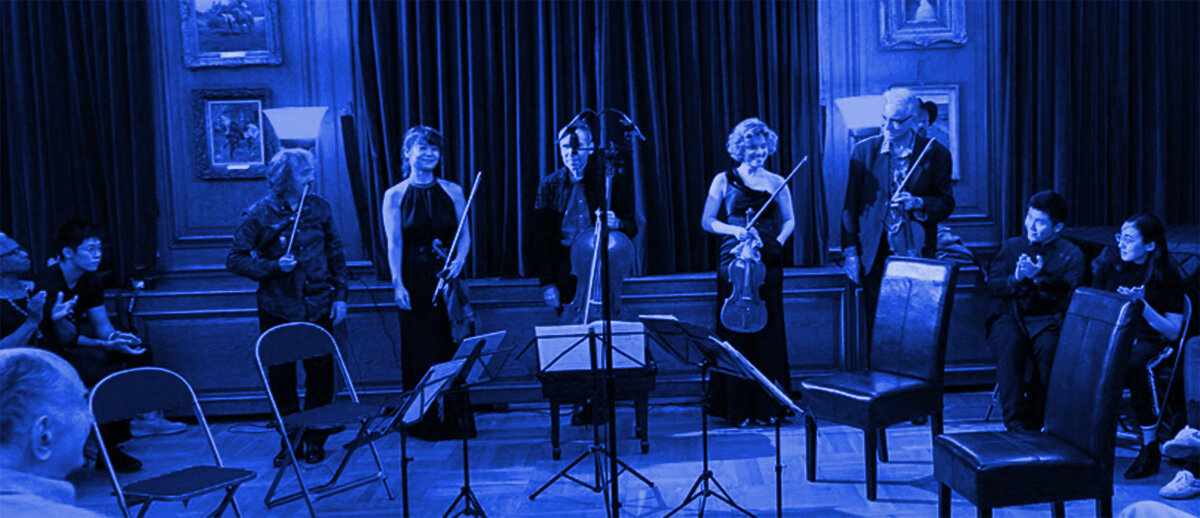
We need your help
Your contributions are essential to our mission of reaching more people with the extraordinary experience of live chamber music.
Thank you for making it happen.
OneMusic Project acknowledges the generous support of the following individuals for their time, gifts, and financial support. With their help, we are able to realize our mission of bringing great artists from Europe and the USA together to perform in our community.
Please join our partnership today by giving to OneMusic Project today!
OneMusic Project is grateful for support from
James & Susan Aisenberg
Veronique Brossier
Chu Family Foundation
Dan Kainen & Karen Dorst
Robert & Nina Kaufelt
Loube-Li Family
Philippe Muller
Alexander Ommaya
The Morris and Alma Schapiro Fund
Joseph Towbin
Wei Family
Individual Contributors
Dhiraj Duraiswami
Ellen Oppenheim
Betsy Mulberry
Eric Sandell
Jeff Vock
Liza Loube

